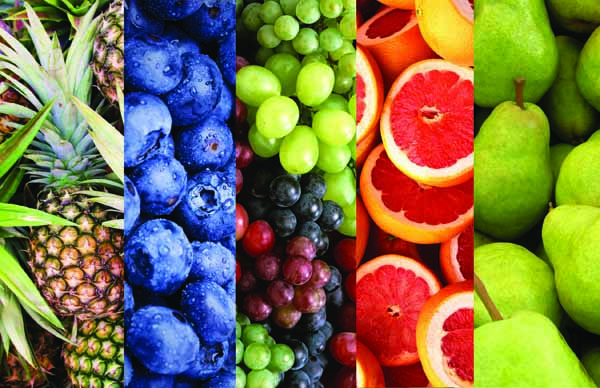JUST IN TIME: Cold Storage Space in Jacksonville on the Rise
- Home
- >
- Cargo Blog
- >
- JUST IN TIME: Cold Storage Space in Jacksonville on the Rise

By: Sandy Smith
This article appeared in the Summer 2018 issue of JAXPORT Magazine.
Produce has, by its very nature, a short shelf life. Anything that delays fresh fruits and vegetables from reaching consumers’ tables quickly adds to the spoils.
So when a pineapple is shipped to the Northeast and trucked down to the Jacksonville area, precious days have been lost – and that’s to say nothing of the added cost of the extra miles.
“That’s not sustainable anymore,” said Rick Schiappacasse, JAXPORT’s Director of Latin America Sales.
This is one of the reasons that Schiappacasse has taken the lead on attracting more cold and frozen imports to JAXPORT. One challenge: a lack of available storage space in the area. That is changing, and just in time.
“Importing foods from South and Latin America – even Asia – is on the rise,” said Michael Pitcher, Burris Logistics’ Sales Director. “The rise of e-commerce, even with grocery, means a lot of companies are working to figure it out.”
The demand for cold storage has also grown due to instability in Puerto Rico after a hurricane damaged the power grid. “In response, many companies have decided to maintain less inventory on the island, shifting fulfillment to stateside facilities that feed weekly pipelines via ocean reefers,” said Scott Fernandez, Vice President, Business Logistics for Aqua Gulf.“Customers are beginning to expect not just refrigeration, but temperature-controlled cargo services from end to end. We see it as a win-win scenario where we can offer true multi-zone cold storage.”
Burris Logistics has seen the change in demand too, Pitcher said. “Our business had been about 90 percent frozen. Over the last 12 or 18 months, it has been a 60/40 split frozen and refrigerated. We’ve been slowly converting to a 50/50 split due to the increase and popularity for the refrigerated temperature range.”
As the capacity has increased, Jacksonville and JAXPORT are uniquely positioned to meet demand. “It’s a good spot logistically with I-95 and I-10 and the railroads,” Pitcher said. “It’s a good distribution point if we can get the product to come in through the port on the temperature-controlled side. It’s a one-day journey to Atlanta and all of Florida’s population.”
Aqua Gulf also sees the convergence of rail and highways as an option. “We feed refrigerated and dry cargo from the West Coast, the Midwest, the Northeast and the mid-Atlantic regions via daily fast transit intermodal options,” Fernandez said. “Puerto Rico and international ocean carriers calling Jacksonville provide multiple sailing options each week, allowing us to minimize transit times for our customers. We think it’s the ideal position for Aqua Gulf in this market and climate.”
At Caribbean Shipping Services, shipping to Puerto Rico makes JAXPORT “the only place to be,” said Advisory Board Member Paul Robbins, who recently retired from the company he founded more than 25 years ago. “It’s a growing port, continually adding service offerings to other Caribbean markets and Latin American markets.”
Caribbean Shipping Services handles about 1.6 million pounds of reefer products each week. Still, there is room for more, Robbins said. “The design for throughput is to go from one shift to two, and from two to three.”
That flexibility means that when Caribbean opened its new facility in 2017, it was able to downsize from 70,000 square feet of temperature-controlled space to 12,000. “The business model is changing. We designed this not for storage. If a customer came to us with a need for import/export storage, we could build to suit.”
Crowley Logistics recently added a cold storage facility in Jacksonville, as well. Given that produce must get to the customer quickly, capacity can continue to increase while cold storage facilities are built.
MORE OPPORTUNITIES FOR JAXPORT AND ITS PARTNERS
The United States Department of Agriculture’s Southeast In-Transit Cold Treatment Pilot Program now includes JAXPORT, making the port a more attractive destination for fruits and vegetables from South America.
“This program should attract new refrigerated fruit and produce importers to the Jacksonville region,” said Aqua Gulf’s Fernandez.
Under the program, imported crops will start their 15-day quarantine as they leave their port of origin. The USDA’s Animal and Plant Health Inspection Service (APHIS) requires refrigerated containers coming into U.S. ports to be sealed and refrigerated at a low temperature for 15 days. This prevents foreign pests and diseases from coming into the U.S.
JAXPORT’s Schiappacasse anticipates only opportunities with this new designation as port partners continue to invest in the necessary cold storage facilities to handle increased produce and reefer cargo volumes.
